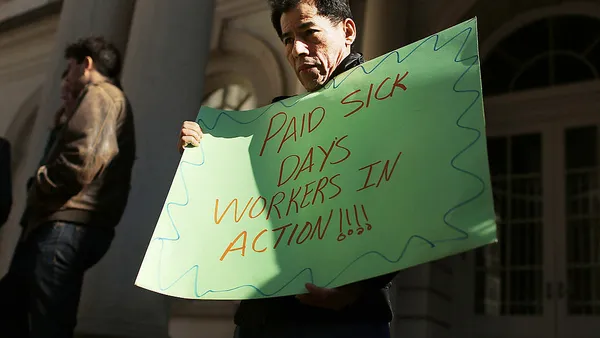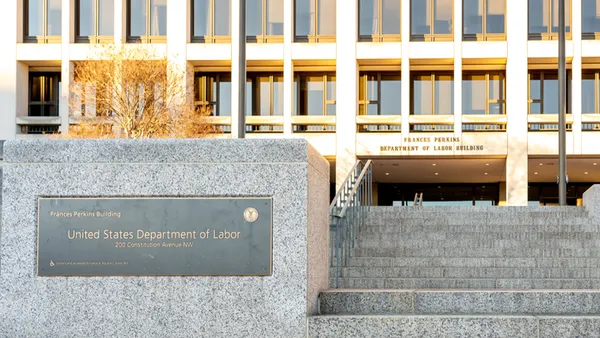Dive Brief:
- Unions are standing in the way of affordable housing initiatives in both New York and California because of disputes over wage rates, according to The Wall Street Journal.
- Union groups say that government shouldn't fund projects that don't require union-scale prevailing wages to give workers a decent paycheck, and trade organizations have pressured lawmakers to scuttle developments that don't meet that standard.
- The Journal noted that unions are losing their grasp on the residential construction industry in New York City, with the Citizens Housing and Planning Council in New York reporting that nonunion labor saves 20% on project costs.
Dive Insight:
In New York, the 421-a tax credit, which gives developers tax breaks for building affordable housing, expired in January because the Real Estate Board of New York (Rebny) and trade unions could not come to an agreement on a prevailing wage rate to be paid on those projects utilizing the credit. New York City Mayor Bill de Blasio said a union-level wage requirement would increase the cost of his affordable housing plan by almost $3 billion, but union representatives said the Independent Budget Office study that determined that figure was incorrect. In recent weeks, however, New York Gov. Andrew Cuomo revealed that he has been in talks with unions and Rebny about a wage subsidy in an attempt to bridge the gap of disagreement and resurrect the credit.
California's affordable housing initiative, which The Journal said is now dead, was significantly different from New York's tax credit battle, as it would have allowed developers to circumvent environmental and other permitting procedures. In addition, critics said that the new law would have allowed developers to demolish affordable housing and replace it with luxury developments containing the smallest affordable component necessary to gain approval.
Aside from residential developments, New York unions are also losing ground with large construction companies that have hedged on renewing collective bargaining agreements. Gilbane has come under union fire recently for reportedly favoring less expensive nonunion labor in the execution of approximately $1 billion of work in New York City. Trade unions have picketed Gilbane job sites and headquarters, but the company said union wages and work requirements drive up costs.
This battle is taking place at a time when affordable housing is in short supply in much of the country. Cities have implemented inclusionary housing laws and fees to try to increase inventory, while San Francisco has recently revised its accessory dwelling unit regulations to allow property owners to squeeze more apartments into their buildings. This move is projected to increase the city's rental units by 14,000.













